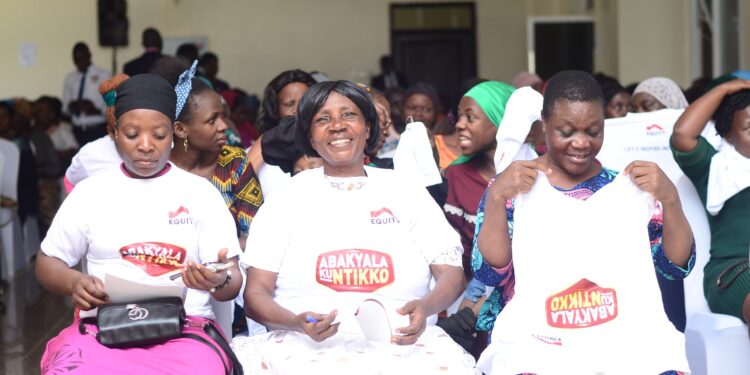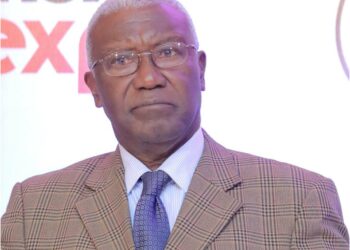Last year, 2191 women embarked on their journey to financial independence and growth through the Enterprise Development and Financial Inclusion program. Since its inception two years ago, the program has positively impacted over 100,000 women and youth.
Many participants have expanded their businesses, diversified their income streams, and improved their personal and family welfare by intentionally creating wealth. Graduates of the financial literacy program continue to uplift and empower other women in their communities.
Sylvia Akankwasa from Arua, Rebecca Katisi, and Yahala Khasifa from Mbale are among the Enterprise Development program graduates and the Equi-Mama credit facility beneficiaries. These three women share a common story of resilience and transformation. When their businesses faced critical challenges, Equity Bank stepped in to support them.
Sylvia Akankwasa operated His Grace International, a small stationery shop with an Internet café that had been around for 15 years in Arua. However, when Covid-19 struck, she struggled to meet her loan commitments to micro-lenders.
“We were on the verge of total collapse. I could not borrow for another 5 years because my Financial Card was too dirty with unsettled obligations. I was considering going to money lenders when Equity Bank came around. They gave me the benefit of the doubt and lent me money under the Equity Mama facility,” Akankwasa recalls.
Since receiving the loan, Sylvia’s stationery shop has grown into a fully-fledged multimedia printing operation, employing seven workers. Equity Bank also gave her another line of credit to plant an orchard that will supply raw materials for her fledgling fruit juice and wine factory, also in Arua.
“The loan helped us to recover and stabilize our financials; it rescued us from imminent collapse. One of the reasons we are still around is because they gave us the benefit of the doubt. If they had not given us the money at that time; we would have gone to money lenders, and I don’t know how this would have ended,” she adds.
Yahala Khasifa shares a similar experience. “No words can fully express my gratitude to Equity Bank. I have been able to grow. I am also dealing in timber and can double my business. I have also invested in land and plan to develop it.”
Rebecca Katisi’s story is slightly different but equally inspiring. The proprietor of Bulambuli RV Millers is constructing a building she plans to name after Equity Bank. On a pure hunch, she walked into an Equity Bank branch in Mbale and inquired about opening a savings account. Upon assurance that there was no limit, she opened the account. A year later, her savings had accumulated to UGX12 million.
She used her savings to buy a piece of land and started construction. With back-to-back loans under the Equi-Mama facility, she has acquired parcels of land and built rentals. Rebecca advises fellow women to partner with Equity Bank to support their growth.
Equity Bank’s Enterprise Development and Financial Inclusion program aims to stimulate job creation by helping Micro, Small, and Medium Enterprises (MSMEs) access the financial and technical resources they need to grow into impactful operations. Selected MSMEs receive advice, mentorship, and entrepreneurship training, with a gender bias favouring youth and women.
To date, 115,956 youth, 58 per cent of them women, have been trained in Financial Literacy and Entrepreneurship Education through the program. Through these efforts, Equity Bank continues to foster economic empowerment and community development, creating a ripple effect of positive change across Uganda.
Do you have a story in your community or an opinion to share with us: Email us at editorial@watchdoguganda.com













